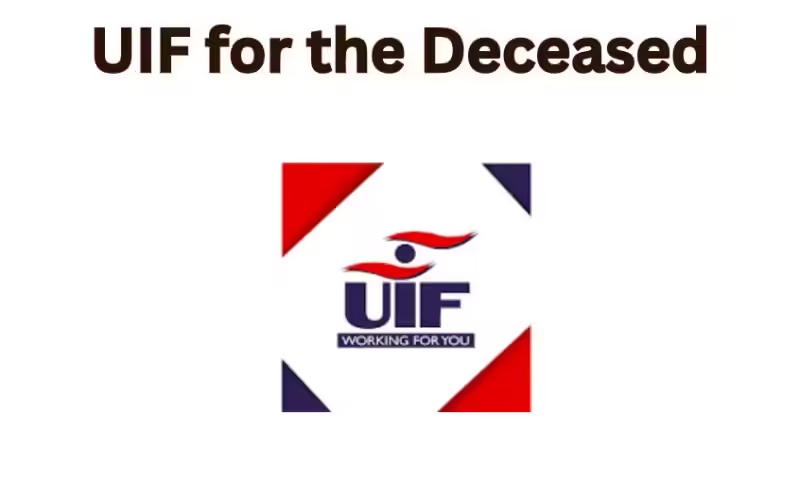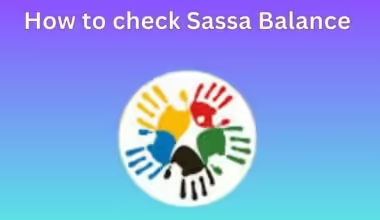“UIF for a Deceased Person” Workers who have lost their jobs in South Africa can receive vital financial support from the Unemployment Insurance Fund (UIF). This fund provides benefits such as short-term unemployment support, illness benefits, and allowances for maternity and adoption. It is funded by payments from both employers and employees. Under the direction of the Department of Employment and Labour, the UIF seeks to provide a safety net for funds in hard times.
It’s critical to comprehend who is eligible for UIF payments in cases involving claims about deceased individuals. Benefits may be payable to surviving family members or dependents of an employee who made contributions to the UIF. Benefits for spouses, kids, and other dependent family members who were financially dependent on the deceased are included in this.
For many South Africans dealing with unemployment and associated difficulties, the UIF continues to be an essential resource despite considerable criticism over its application procedure and financing problems. To get the money they require, people handling claims for a deceased person’s UIF benefits must be aware of the requirements for eligibility and the application procedure.
Who Can Claim UIF for a Deceased Person?
The Unemployment Insurance Fund (UIF) in South Africa provides financial assistance to a dead contributor’s dependents. Family members of an individual who made contributions to the UIF may be entitled to benefits in the event of the individual’s death. Particularly, those who were financially dependent on the deceased, such as a spouse or minor children, may apply to the UIF for a lump sum payment.
The claimant needs to submit several important documents to receive UIF compensation for a deceased person. This includes a death certificate as well as documentation of their marriage or birth that attests to their tie to the deceased. Claimants must also provide proof of their earnings and their financial reliance on the deceased.
It’s crucial to remember that not every instance qualifies for UIF benefits. Claims about suicides or homicides, for example, are typically disregarded. Benefit payments are likewise limited and determined by the deceased’s UIF contributions.
To be eligible for these benefits, applications must be filed no later than six months after the worker’s passing. Knowing these standards is essential for anyone wishing to file a UIF claim on behalf of a deceased individual to get the assistance they seek during a trying time.
What is Needed When Claiming the UIF of a Deceased?
To properly file a claim for UIF benefits on behalf of a deceased person in South Africa, specific documentation is required. Here is a brief outline of what is required:
- Certified Death Certificate: This document proves the death of the UIF contributor and is crucial for initiating the claim.
- Proof of Relationship: Provide evidence of your relationship to the deceased, such as a marriage certificate or birth certificate. This establishes your eligibility to claim benefits.
- Proof of Financial Dependence: Submit documentation that shows you were financially dependent on the deceased. This could include proof of income or other financial records.
- UIF Contribution Card or Reference Number: If available, include the deceased’s UIF contribution card or reference number to facilitate the processing of your claim.
- Completed UIF Claim Form: Obtain and fill out the UIF claim form, available at UIF offices or online.
It’s crucial to remember that UIF payouts are intended to provide financial support rather than to completely replace the dead person’s income. In addition, certain deaths—such as homicides and suicides—do not qualify for UIF compensation.
To expedite the process of claiming UIF benefits for a deceased individual and get the assistance you require during this trying time, make sure you have all the required paperwork and information.
Who Are the Beneficiaries of UIF?
Workers in South Africa who become unwell and are unable to work are supported financially by the Unemployment Insurance Fund (UIF). Nonetheless, dependents of a dead donor are also eligible for payments under the UIF. Who is eligible to receive UIF benefits on behalf of a deceased individual?
- Spouse or Life Partner: If the deceased was living with their spouse or life partner at the time of death, the surviving partner is eligible to claim UIF benefits.
- Children: The deceased’s children can claim benefits if they are under 18 years old or are disabled and unable to support themselves.
- Parents: If the deceased’s parents were financially dependent on them, they can also be considered beneficiaries.
To be eligible for payments, these dependents must present the required paperwork, such as a death certificate and evidence of a relationship. Recall that UIF benefits are not meant to replace the deceased’s whole income; rather, they are meant to offer some financial support during a difficult period.
South Africans may make sure their qualified dependents get the assistance they require by knowing who is entitled to receive UIF payments and gathering the necessary paperwork.
Who Cannot Claim for UIF?
The Unemployment Insurance Fund (UIF) in South Africa offers vital financial assistance; nevertheless, there are certain circumstances in which UIF claims cannot be filed on behalf of a deceased individual. Here’s a summary of who is not eligible for UIF benefits:
- Deceased Due to Suicide or Criminal Activity: UIF benefits are not available for those who have died by suicide or as a result of criminal acts.
- Non-Contributors: If the deceased did not make UIF contributions during their employment, their dependents are ineligible to claim UIF benefits.
- Those with Certain Employment Issues: Claims cannot be made for workers who were dismissed due to serious misconduct or gross negligence. Additionally, if the deceased voluntarily left their job without a valid reason, their dependents cannot claim UIF.
- Self-Employed Individuals: UIF benefits are intended for employees who contribute to the fund through their employment. Self-employed individuals, who do not contribute to UIF, cannot claim benefits for themselves or their dependents.
Knowing these exclusions makes it possible to guarantee that only qualified dependents can get UIF payments; those who don’t fit the requirements won’t be allowed to submit a claim. For South Africans attempting to understand the UIF claims process, this clarity is essential.
How Long Does UIF Payout After Death?
The dependents of a contributor who has passed away in South Africa receive financial help from the Unemployment Insurance Fund (UIF). A deceased person’s UIF payout length and amount are determined by several circumstances, including the deceased’s contributions.
In general, a deceased person’s UIF payments are distributed based on their contributions to the fund for a maximum of 12 months. Nevertheless, dependents may now claim these payments up to 18 months after the contributor’s passing, according to recent amendments to the UIF Act, which went into effect in 2018.
Even if the original claim submission time has passed, it is always worthwhile to get in touch with your neighborhood UIF office. They might be able to help you, depending on the details of your case, particularly if you can produce the required paperwork, such as the deceased’s UIF reference number and proof of relationship.
It is crucial to comprehend these deadlines and prerequisites to obtain the assistance you desire throughout a trying period. Keeping track of these deadlines is essential for South Africans and other process navigators to guarantee they may claim UIF payments within the permitted timeframe.






